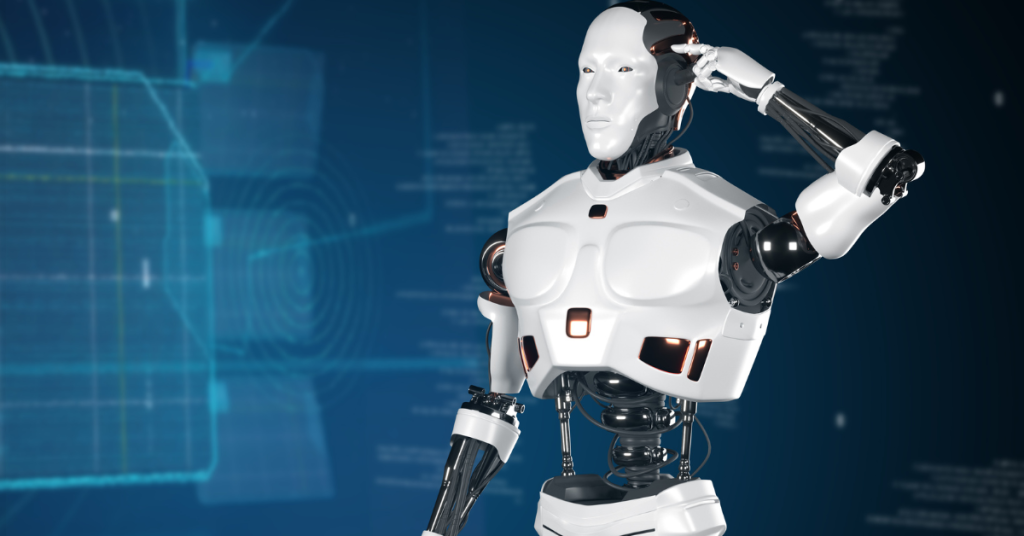Artificial Intelligence (AI) is no longer a futuristic concept; it has become a fundamental part of modern business operations. From automating mundane tasks to providing deep insights through data analysis, AI transforms how companies operate, compete, and grow. This article delves into various ways AI integrates into modern businesses, enhancing efficiency, customer satisfaction, and overall performance.
Table of Contents
Enhancing Customer Experience
One of the most prominent applications of AI in businesses is enhancing the customer experience. AI-driven chatbots and virtual assistants offer 24/7 customer support, providing instant responses to inquiries and resolving issues without human intervention. These AI tools can handle a vast range of queries, from simple FAQs to more complex problem-solving, significantly improving response times and customer satisfaction.
Moreover, AI can personalize customer interactions by analyzing data from past interactions and purchases. This allows businesses to tailor their marketing efforts, recommending products or services that align with individual preferences and needs. By providing a more personalized experience, companies can foster stronger customer loyalty and drive higher sales.
Streamlining Operations
AI’s role in streamlining operations cannot be overstated. In logistics and supply chain management, AI algorithms optimize routes, predict demand, and manage inventory, ensuring efficient and cost-effective operations. For instance, AI-powered systems can anticipate stock shortages and automatically reorder supplies, minimizing downtime and preventing overstock situations.
In manufacturing, AI-driven predictive maintenance systems monitor equipment performance and predict potential failures before they occur. This proactive approach reduces downtime, extends the lifespan of machinery, and lowers maintenance costs. Additionally, AI-enhanced production lines improve precision and speed, enhancing overall productivity.
Empowering Decision-Making

Data is the lifeblood of modern businesses, and AI plays a crucial role in transforming data into actionable insights. AI-powered analytics tools sift through vast amounts of data, identifying patterns and trends that would be impossible for humans to detect. These insights help business leaders make informed decisions, from strategic planning to day-to-day operations.
For example, in finance, AI algorithms analyze market trends, economic indicators, and historical data to provide investment recommendations. In marketing, AI helps identify the most effective strategies by analyzing consumer behavior and campaign performance. By leveraging AI’s analytical capabilities, businesses can make data-driven decisions that enhance competitiveness and profitability.
Enhancing Security
Security is a top priority for modern businesses, and AI is proving to be a valuable ally in this area. AI-powered cybersecurity systems can detect and respond to threats in real-time, often before they cause significant damage. By analyzing patterns and anomalies in network traffic, these systems identify potential security breaches and automatically take preventive measures.
AI also plays a role in fraud detection, particularly in financial institutions. AI algorithms analyze transaction data to identify unusual patterns that may indicate fraudulent activity. By catching fraud early, businesses can protect their assets and maintain customer trust. Additionally, tools like GPTZero AI detector can be used to ensure the authenticity of security reports and communications, confirming that they are human-generated and not manipulated by malicious AI entities.
Revolutionizing Human Resources
AI is also making significant strides in human resources (HR), transforming how companies manage their workforce. AI-powered recruitment tools streamline the hiring process by scanning resumes, identifying the best candidates, and even conducting initial interviews. This speeds up the recruitment process and ensures a better match between job requirements and candidate skills.
Once employees are onboard, AI tools can monitor performance, identify areas for improvement, and suggest personalized training programs. This helps create a more engaged and productive workforce. Additionally, AI-driven HR systems can analyze employee sentiment through surveys and feedback, providing insights into workplace culture and morale.
Conclusion
The integration of AI in modern businesses is revolutionizing various aspects of operations, from customer service and decision-making to security and human resources. By harnessing the power of AI, companies can enhance efficiency, personalize customer interactions, and make more informed decisions. As AI technology continues to advance, its role in business will only grow, offering even more opportunities for innovation and improvement. Embracing AI is not just an option but a necessity for businesses aiming to thrive in today’s competitive landscape.
[…] generating profit, cybersecurity prevents disasters that could spell financial ruin, especially for small businesses. Regular up-to-date cybersecurity training costs a fraction of the expenses resulting from data […]
[…] hacking is a profitable skill and much in demand. Especially with the advancement of technology, Ai and different apps, now hacks get the edge to introduce malicious actors and malware into the […]
[…] your AI initiatives. You should look for a consultancy with a proven track record in implementing AI solutions for businesses similar to yours. They should have a deep understanding of both the technical aspects of AI and its […]
[…] key tips for designing a conference room that meets the needs of your team while highlighting technology integration, furniture selection, and ergonomic considerations. Whether you are starting from scratch or […]
[…] Also Read: AI Integrations in Modern Businesses […]